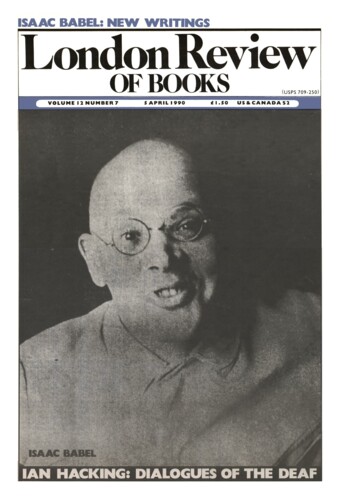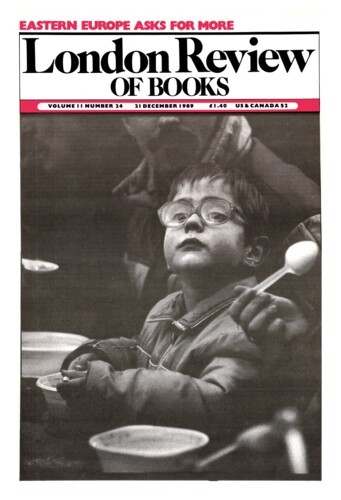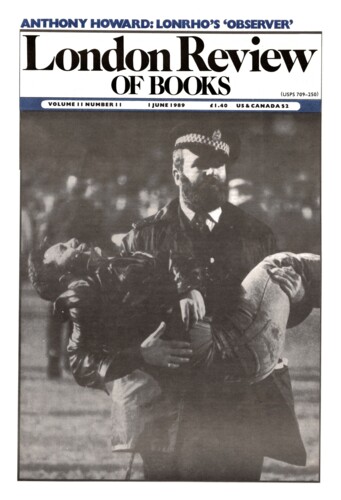Out of it
Rosalind Mitchison, 5 April 1990
These two writers are both concerned with the old and the elderly, but to very different effect. Minois presents a repertoire of comments on the old, from the ancient world to the 16th century: most comments are hostile. Girning about the disagreeable features of the old seems to have been a recognised literary form. Writers experimented with new nasty similes or enlarged upon a repertoire of unpleasant features. Cicero wrote a whole book about the old, ostensibly to rebut the standard criticisms, but at the same time admitted that he did not believe his arguments. He appears to have confined his observation of the old to old men. Horace by contrast went overboard on how disgusting old women were. The usual comments of Latin writers on the old was that they were dirty, sallow, stinking; their dominant mental attributes avarice, stupidity and concupiscence.





